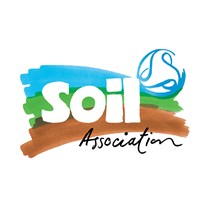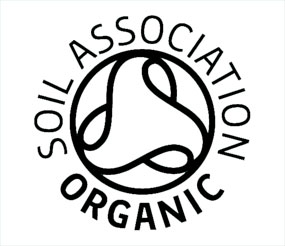
- Soil Association
- Take action
- Organic living
- Why organic?
- Better for the planet
- Does climate change mean I need to stop eating meat?

Does climate change mean I need to stop eating meat?
Meat and climate change are regularly in the headlines.
But is all meat bad for the planet? How does eating meat affect the climate?
What we choose to eat is a deeply personal decision. However, it is becoming increasingly clear that our diets need to change to support a sustainable future.
In the face of the interlinked crises of climate change, wildlife decline and diet-related ill-health, we need to change the way we eat and consider where our food comes from.
Discover the information:
Should I stop eating meat?
There is no quick answer to this. Yes, we must reduce our meat intake and stop eating meat that’s been intensively farmed - where animals are kept indoors and bred to grow abnormally quickly. But you don’t need to stop eating meat altogether (not if you don’t want to).
There is an important role for sustainably produced meat in the diet, for those that want to eat it.
Should I become vegan to help the environment?
Whether you’re a meat-eater, vegetarian or vegan, the dietary choices you make have an impact.
Thinking carefully about where your food comes from will help reduce any negative impacts on our climate, our environment and our health.
This could mean:
- Eating less meat overall and incorporating more plant proteins.
- Not eating meat that’s been intensively farmed.
- Choosing climate and nature-friendly meat, produced to higher welfare standards. This includes local, grass-fed and higher welfare meat like organic.
The environmental impacts of farming are complicated. The best methods of farming produce fewer gases that contribute to climate change. They also help to protect wildlife and keep soils healthy.
On these agroecological or organic farms, farm animals can play an important role.
A diet that includes this type of meat can have a positive impact - on the environment, farm animal welfare and your health.

Beef and the Environment
Cows and sheep, due to their complex digestive systems, burp out more methane gas than other farm animals. Methane is a very powerful but short-lived greenhouse gas that contributes to climate change.
However, not all meat is created equal. Meat production methods vary hugely across the globe and have different climate impacts.
Intensive feedlot cow farms, more common in the USA, keep a very large number of animals in relatively small areas. It is argued that large herds of fast-growing cows have less climate impact, mainly because they live shorter lives.
But, although they live for a shorter time, these farms aim to raise more cows. The more beef that’s produced, the more methane that will be released.
The picture is bigger than methane too; intensive farms can be pollution hotspots. They rely on lots of water and grain crops for animal feed. Producing this grain uses land that could be used for human food crops.
In the UK, the scale of intensive farming is not quite as extreme as many of the farms in the USA, although the number of ‘intensive’ UK farms is growing fast.
At the other end of the scale, organic and grass-fed farming methods have been found to have many positive environmental impacts. In other words – it’s not the cow, it’s the how.
Should I just switch to chicken?
No. It is often said that white meat is better for the planet because chickens and pigs do not produce as much methane as cows. This has led some people to opt for chicken instead of beef in their weekly shop. In fact, almost all growth in UK meat consumption is chicken.
However, chicken and pork farming commonly has a negative impact on the environment, often as a result of the feed they eat.
-
Take the pledge to eat less and better meat and opt for organic
Make a pledge for the planet and take action to help transform our natural world today

Animal feed and climate change?
Growing animal feed like soya takes up large areas of land.
Rainforests and wildlife-rich land in places like Latin America are often destroyed to make space for this. Trees capture gases like carbon dioxide. This stops the gases building up in the atmosphere and warming our planet.
Deforestation stops trees from continuing to capture carbon and is one of the largest sources of greenhouse gas emissions in farming. It also has huge impacts on the animals and plants that rely on these habitats to survive.
However, not all animal feed has to come from areas linked to deforestation or damaging land-use change. Grains for animal feed can be grown here in the UK. Chickens actually consume the equivalent of half of the UK wheat crop.
But this has drawbacks too. Using fertile land to produce animal feed means less space to plant trees, grow food for humans to eat or graze livestock.
Currently, we waste lots of food, but there are opportunities for surplus food to be used for animal feed. This would be beneficial for lots of reasons; it would:
- recycle food waste,
- prevent landfill greenhouse gas emissions and
- keep the food on the farm,
providing a climate-friendly diet for pigs and chickens.
So, as you can see, it is not as straightforward as saying that ‘chicken is better for the environment because they don’t produce as much methane as cows’.
Emissions don’t just come directly from the animals themselves, their food production also plays a big part.
The vast majority of farmed pigs and chickens rely wholly on grains and oilseeds, with no grass in their diets. When grazing on grass, animals like cows and sheep have been shown to deliver benefits to the environment.

The role of grazing animals
Grazing animals play an important role in nature-friendly farming systems. They:
- Help lock carbon in the soil
Soil holds three times more carbon than the atmosphere, and organic systems which include grazing animals have been shown to hold more carbon on average than non-organic soils.
Diverse grasslands don’t just provide food for livestock, they also provide homes for lots of different types of wildlife including bees, birds and butterflies. They enhance the wildlife in soil itself too!
- Reduce the need for chemical fertilisers
As they graze, animals spread their manure across fields helping spread fertility across the farm. This ‘feeds’ nutrients to the plants and organisms in the soil, improving soil health.
Without animals, most farmers rely on chemical fertilisers to feed their crops. These fertilisers are normally made from fossil fuels and can damage the soil. They’re bad news for climate too. When they react with oxygen, they produce nitrous oxide - a greenhouse gas that is 300 times worse for the climate than carbon dioxide!
Grazing animals can limit these impacts. They recycle nutrients on the farm more effectively, without the need for chemical fertilisers.
Can sustainable farming feed the world?
Recent research has modelled a future where sustainable farming can feed the world.
It finds that Europe can feed a growing population a healthy, largely organic diet without relying on imported food.
To achieve this, we must end reliance on imported animal feed, eat less and better meat and support farmers in the UK and abroad to adopt nature and climate-friendly farming methods like organic.
What can I do?
To realise this future, we all need to support organic and agroecological farmers.
You can do this easily. Just look for the Soil Association organic logo next time you go food shopping.
This symbol helps you be sure that the food you buy has been produced to some of the highest environmental and animal welfare standards.
If you can buy from a local producer, great, but if not, all the supermarkets have their own brand organic ranges. You can shop organic online in places like Ocado or find an organic box scheme near you.

-
Join our community
Sign up for our regular emails to find out more about nature-friendly farming, and receive more practical tips and opportunities to get involved in our campaigning work
Sign up today

